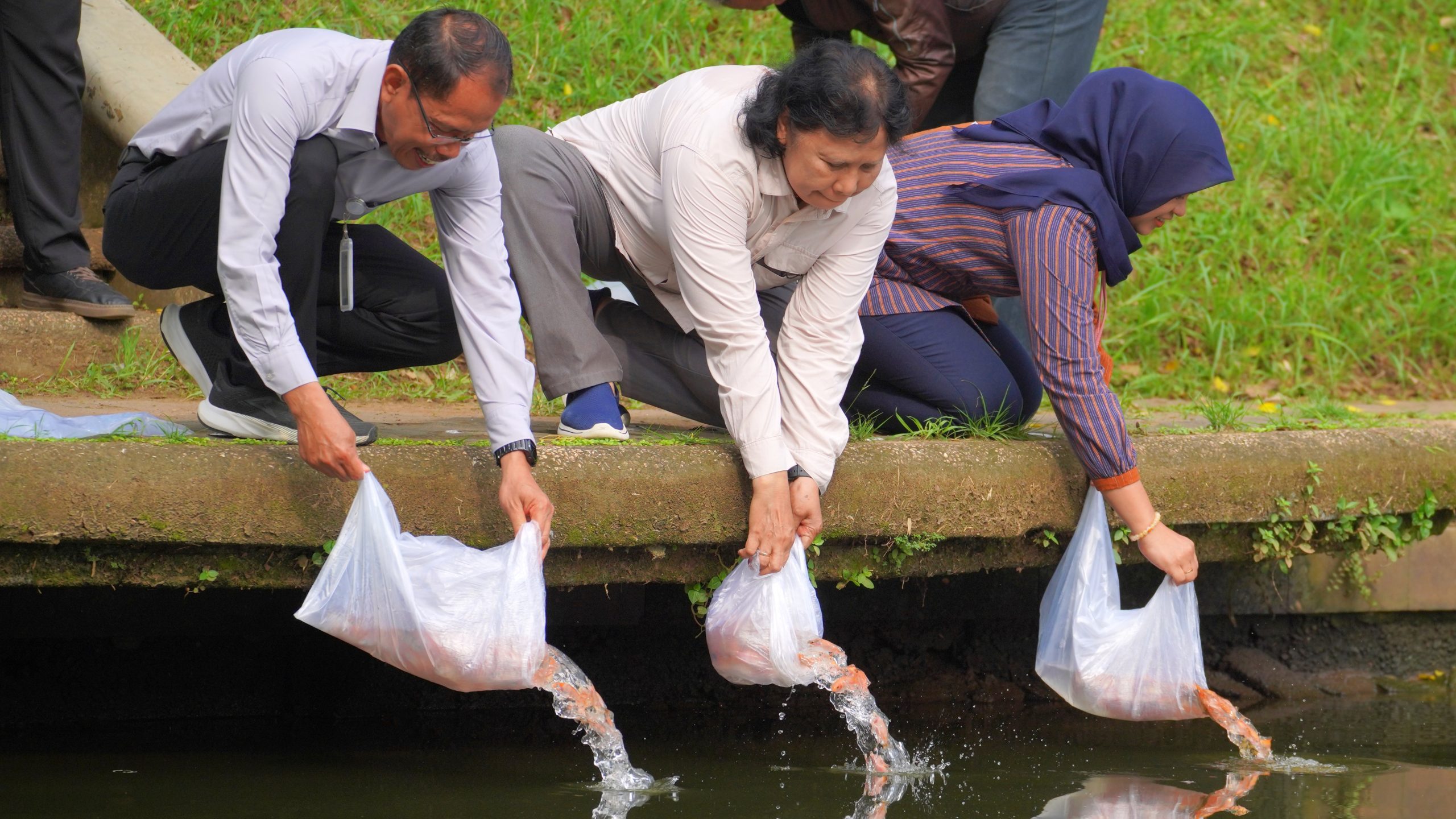Langkah Unnes dalam melakukan konservasi merupakan langkah yang sangat tepat guna menciptakan kondisi lingkungan yang sehat dan bebas polusi.
Hal tersebut diungkapkan Prof Kiyofumi Saijo dari Kanazawa University Jepang, dalam Focus Group Discussion (FGD) yang dimotori oleh International Office Universitas Negeri Semarang (Unnes), bersama Jurusan Ilmu Kesehatan Masyarakat Fakultas Ilmu Keolahragaan Unnes, Rabu (28/12).
Bicara di depan para dosen Unnes, Prof Kiyofumi Saijo memaparkan dampak panjang polusi pada tanah, udara, dan air terhadap kelangsungan hidup manusia. Pencemaran lingkungan di Jepang memunculkan kasus utama timbulnya penyakit Ouch-ouch dan Minamata Diseases. Pencemaran itu terjadi karena tingginya konsumsi masyarakat Jepang terhadap ikan mentah, sedangkan kebanyakan ikan tersebut berasal dari perairan Cina yang banyak mengandung unsur merkuri.
Prof Kiyofumi juga menjelaskan bahwa teknik penyimpanan ikan di lemari es dan teknik pemotongan juga mempengaruhi kadar infeksi pencemaran pada daging ikan tersebut. Selain itu, dia juga menegaskan bahwa mengkonsumsi ikan yang telah dimasak merupakan langkah paling aman.
Terkait dengan program konservasi di Unnes, Prof Kiyofumi mengatakan, Unnes hendaknya juga memerhatikan kondisi tanah, air, dan udara di sekitar sebelum melakukan penanaman. Hal ini dimaksudkan agar kejadian di Jepang, yaitu menyebarnya penyakit Ouch-ouch yang disebabkan oleh konsumsi padi yang ditanam pada lahan yang mengandung merkuri tidak terjadi di Indonesia.
Hal senada juga disampaikan Pembantu Rektor Bidang Pengembangan dan Kerja Sama Unnes Prof Dr Fathur Rokhman. Dia mengemukakan, visi dan misi konservasi Unnes sangatlah penting guna meningkatkan kesehatan masyarakat dan lingkungan sekitar kampus khususnya dan lingkungan global pada umumnya.
Dengan diselenggarakannya FGD ini diharapkan bisa memperkokoh visi dan misi universitas konservasi. Selain itu, FGD juga memperkuat hubungan kerja sama antara Unnes dan Kanazawa University. “Saat ini ada sejumlah dosen Unnes yang sedang menjalankan tugas studi lanjut dan beberapa dosen lain yang sedang mempersiapkan diri untuk melanjutkan studinya di Jepang,” ujar Prof Fathur Rokhman.
–Badrus Siroj, Admin kerjasama.unnes.ac.id




semoga unnes semakin mendunia,,
dengan sosialisasi-sosialisasi yang menarik..
Pak Fatur, mohon maaf pak kalu bisa acara semacam FGD seperti ini tidak hanya diikuti oleh para dosen saja. Namun mahasiswa juga dilibatkan, nanti dibuat semacam kuliah umum. harapannya yang tercerdaskan bukan hanya dosen-dosennya saja, mahasiswa juga.